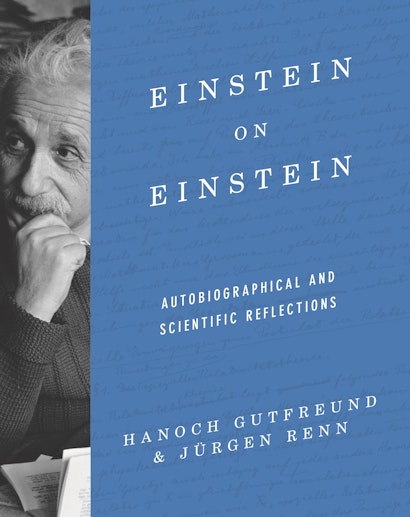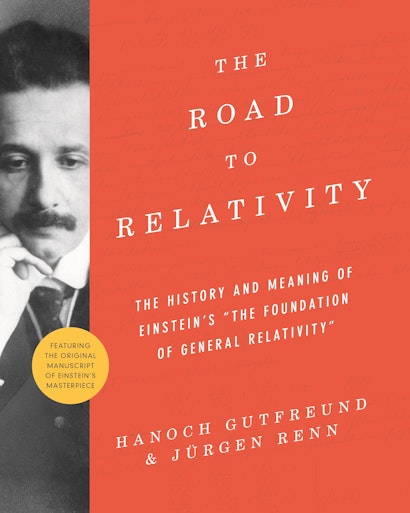In the title of his keynote address at a conference to investigate Einstein’s impact on science, culture, and the public-political discourse at the dawn of the twenty-first century, Gerald Holton, a pioneer of Einstein scholarship in the historical and philosophical context, asked why Einstein is still so alive. This question deserves some reflection. The memory of most famous people, even that of great scientists, gradually fades to history after their death. Scientists may be enthroned for eternity in the pantheon of science and will be remembered through the laws and phenomena associated with their name, but any public fascination with their personality and achievements usually fades over time.
In Einstein’s case, this seems to work the other way around. Not only does the scientific community continue to debate, confirm, and discover new consequences from his monumental work. Around 65 years after his death, public interest in his life and science continues unabated. He appears to be even more alive today than twenty years ago when Gerald Holton posed this question.
A first attempt to answer the question could relate to his role in shaping our understanding of the physical world. First and foremost, Einstein was the architect and engineer of a new understanding of the physical world, the most revolutionary innovator since Newton. Einstein remains the uncontested pioneer of the transition from classical to modern physics. In 1905, his “Miraculous Year,” he published four papers that became the pillars of this transition. The technological consequences of his theories continue to affect our daily lives through myriads of applications. In 1915, he formulated a new theory of gravitation, the essence of his general theory of relativity, which is the genesis of modern cosmology and the basis of our understanding of the universe.
Could this alone explain the fact that Einstein has become such a popular cultural icon? That centennials of the landmarks of his creativity have been celebrated worldwide by public events, international conferences, workshops, television programs, and avalanches of new books? That his image decorates so many commercial products and is the most recognizable face on our planet? Apparently not.
Consider, for example, another very famous scientist, Louis Pasteur (1822–1895), possibly the greatest innovator in the field of medicine and biology. His name is associated with many new concepts and discoveries and he is universally recognized as a benefactor of humanity. His discovery of vaccines against certain diseases may be considered as the genesis of immunology. There is no question that his ground-breaking contributions to the life sciences and their applications in medicine and food production have had a huge impact on our daily lives. But how many people would recognize his face today, or even know who he was?
Progress in science and new cosmological observations remind us time and again that Einstein was right, but also of the open-endedness of the quest for knowledge. When new discoveries related to Einstein’s work occur, such as the recent detection of gravitational waves, people around the globe who do not necessarily understand what the commotion is about, or maybe because of it, are fascinated by the charismatic appeal of science and the iconic image of its most conspicuous representative—Albert Einstein.
The presence of Einstein in modern culture is all-embracing—in art and literature, in movies and television programs, and in the digital media. In 2008, Don Howard, a prominent scholar of Einstein’s science and philosophy, began his generally favorable review of a biography of Einstein by Walter Isaacson with the question “Still, there are too many books on Einstein. Shall we call for a moratorium?” This question seems not to have been taken seriously. Searching online for books on Einstein published after 2008, we find more than 80 English titles on his life and on specific domains of his activities (this number excludes the numerous books for children, comic books, and books for professional physicists). This flood of publications on Einstein attests to his enduring legacy and presence in the public mind, but also contributes to it. Thus, we may expect it to continue for many years to come.
But what is so special about Einstein? His iconic status is certainly also due to specific historical circumstances, in particular, the role of the emerging mass media at the beginning of the twentieth century. Einstein became one of the first media stars of science at a time when the world was hungry for such celebrities. Shortly after the end of World War I in 1919, Einstein was catapulted to fame when British astronomical expeditions confirmed his prediction about the bending of light from distant stars by the gravitational field of the sun. It suddenly became clear, also to the broader public, that science is an international affair and that Einstein personifies this international, bridge-building function of science.
This public image stayed with him during his lifetime. It evolved and expanded in many directions and continues even today. Einstein himself contributed to this image in many ways. He was constantly in the public eye. In numerous articles, interviews, correspondence with peers, and public addresses, he expressed his views on a variety of such public, political, and moral issues as nationality and nationalism, war and peace, human liberty and dignity, and he launched relentless attacks on all forms of discrimination.
Controversial, bluntly expressed, and often considered simple-minded or naïve, his positions nevertheless made a significant impact. His oral and written rhetoric often included witty punch-lines and very quotable statements. Speaking about Einstein’s public image, one may not overlook the contribution of his behavior and physical appearance to the general curiosity and fascination with his personality. He did not respect the strict codes of social conduct and, with his signature tousled hair, did not care much about his appearance. This nonconformist and anti-authoritarian image, soundly supported by his actions, persists in the popular imagination even today.
Einstein the vamp, the Charlie Chaplin of science. But is his indifference to societal conventions really enough to explain his special status in the pantheon of science? Einstein’s views and activities outside of physics are not simply add-ons to a life devoted to science: they are evidently driven by the same inner urge as his quest for scientific knowledge. These two aspects of Einstein’s commitments and activities reflect a deep tension at the root of his personality.
Einstein himself was aware of this deeper tension. In 1931 he wrote an essay “The World as I See It,” in which he referred to a broad array of themes ranging from science, art, religion, the preferred political order, right up to the meaning of life. He explicitly addresses his scientific life, and all other spheres of human life. It is this conscious tension between his inner life and his sense of independence in search of a comprehensive scientific worldview as well as his passion for human affairs that renders Einstein such a complex human being, embodying in his own personality the fundamental tensions of science in the modern world.
This is probably the most profound reason why Einstein is still so very much alive today and will continue to be so in the foreseeable future: science is becoming ever more relevant to all aspects of modern societies, but also raises questions about the capability of humanity to understand the natural world and its role in it, and to make good use of that understanding in shaping its own fate. Einstein remains with us as the pioneer who squarely confronted this human condition, not just as a brilliant scientist, but also as a thoughtful philosopher and a caring humanist, aware of both his own and all of our collective limits.
Hanoch Gutfreund is professor emeritus of theoretical physics at the Hebrew University of Jerusalem, where he is also academic director of the Albert Einstein Archives. His books include, with Jürgen Renn, The Formative Years of Relativity: The History and Meaning of Einstein’s Princeton Lectures (Princeton). Jürgen Renn is a director at the Max Planck Institute for the History of Science in Berlin. His books include The Evolution of Knowledge: Rethinking Science for the Anthropocene (Princeton).



